Safety Electrical

What are the safety regulations for electrical work ?
Electrical work involves a high level of risk, and it is essential to follow strict safety regulations to prevent accidents and injuries. Here are some of the key safety regulations for electrical work: - Always wear appropriate personal protective equipment (PPE), such as insulated gloves, safety glasses, and non-conductive shoes. - Turn off the power before starting any electrical work, and use a lockout/tagout system to prevent accidental energization of equipment. - Use insulating materials and tools designed for live work when working near live circuits. - Assess confined spaces for potential hazards before entering and use ventilation systems to maintain safe air quality. - Only qualified personnel should work with high voltage circuits, using specialized tools and following specific procedures for testing and inspection. - Know emergency procedures, including the location of emergency equipment and how to call for help.
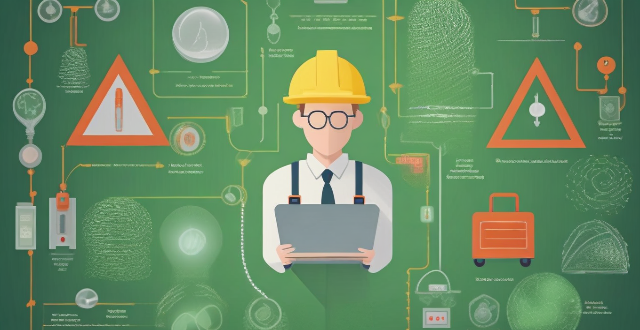
What are the basic principles of electrical safety ?
Electrical safety is crucial in daily life, especially with modern technology. Basic principles include understanding electricity, maintaining equipment, using appropriate tools, avoiding direct contact with electricity, keeping away from water, following proper wiring practices, being cautious with extension cords, checking for overheating, and knowing your limitations. Following these principles can prevent accidents and ensure safe use of electrical devices.

How can I ensure electrical safety in my home ?
Electrical safety is crucial for maintaining a secure home environment. Hire licensed electricians, schedule inspections, keep appliances clean, avoid overloading outlets, be cautious around water, childproof your home, use proper lighting, keep flammable materials away from electrical appliances, and know how to shut off power in emergencies.

How often should I have my electrical system inspected ?
Electrical system inspections are crucial for ensuring the safety and functionality of your home or business. The frequency of these inspections depends on various factors such as the age and type of property, recent changes, and local regulations. For residential properties, it is recommended to have your electrical system inspected every 5-10 years, but more frequently if you notice any signs of trouble or live in an older home. Commercial properties should have their electrical systems inspected annually due to higher usage and demand. Regular safety checks are also essential for commercial properties to comply with local regulations and protect employees and customers from potential hazards. It is always better to err on the side of caution and schedule regular inspections to maintain the safety and functionality of your electrical system.

How can I protect my children from electrical hazards ?
The text provides a comprehensive guide on how parents can protect their children from electrical hazards. It emphasizes the importance of education, preventative measures, emergency response, and parental supervision in ensuring electrical safety for kids. The key steps include teaching children about electricity using simple language and visual aids, role-playing safe vs. unsafe scenarios, covering all outlets with plugs or surge protectors, childproofing the home by securing loose wires and unplugging devices when not in use, proper placement of devices away from water sources, regular inspections for faulty wiring, learning first aid including CPR training, keeping emergency numbers handy, supervising young children around electrical devices, and setting rules and boundaries regarding electrical safety. By following these guidelines, parents can significantly reduce the risk of electrical hazards affecting their children, emphasizing that vigilance and proactive measures are crucial for maintaining electrical safety in the family.

What are the OSHA standards for electrical safety in the workplace ?
OSHA has established standards for electrical safety in the workplace to protect employees from hazards associated with electricity. These standards cover training, lockout/tagout procedures, arc flash hazard protection, grounding and bonding, and maintenance of electrical wiring and equipment. Specific requirements vary depending on the type of workplace, such as construction sites, industrial settings, and office environments. By following these standards and implementing appropriate controls, employers can create a safe work environment and reduce the risk of electrical accidents and injuries.

What should I do if I encounter an electrical fire ?
In the event of an electrical fire, it is important to stay calm and assess the situation. If possible, turn off the power source causing the fire and use a Class C fire extinguisher. Call for help if the fire cannot be controlled or is spreading rapidly. Evacuate the area quickly and safely, avoiding elevators. Never use water to try to put out an electrical fire, as it can cause electrocution. Keep a safe distance from the fire and follow up with professionals to inspect and repair any damaged electrical systems.
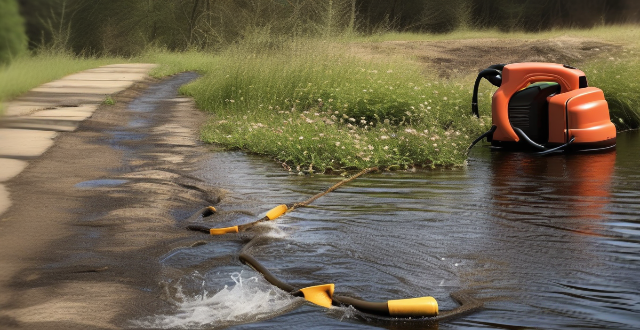
How do I properly use and maintain electrical equipment ?
Electrical equipment requires proper use and maintenance to ensure safety, efficiency, and longevity. Key tips include reading the manual, inspecting before use, avoiding overloading, keeping away from water, cleaning regularly, checking wiring, replacing parts as needed, storing properly, unplugging when not in use, using surge protectors, and avoiding DIY repairs for significant issues. Following these guidelines helps extend the lifespan of electrical equipment and minimizes risks associated with their use.

What are some common electrical hazards ?
Electrical hazards are a common occurrence in homes, workplaces, and public areas. They can cause serious injuries or even death if not handled properly. Here are some of the most common electrical hazards: ## Overloaded Circuits An overloaded circuit occurs when too many appliances are plugged into a single outlet or circuit. This can cause the circuit to overheat, leading to a fire. It is important to distribute the load across multiple outlets and avoid using extension cords as permanent solutions. ## Faulty Wiring Faulty wiring is another common electrical hazard. This can occur due to poor installation, wear and tear, or damage to the wires. Faulty wiring can cause short circuits, sparks, and electrical shocks. Regular inspections and maintenance by a licensed electrician can help prevent this hazard. ## Water and Electricity Water and electricity do not mix. If water comes into contact with electrical devices or wiring, it can cause electrocution or electrical fires. It is important to keep electrical devices away from water sources and ensure that all electrical appliances are properly grounded. ## Ungrounded Outlets Ungrounded outlets lack a third prong that grounds the outlet to the earth. This can lead to electrical shocks and increase the risk of electrical fires. It is important to have all outlets in your home or workplace grounded for safety. ## Damaged Cords and Plugs Damaged cords and plugs are also common electrical hazards. If a cord is frayed or cracked, it can expose live wires and cause electrical shocks. Similarly, damaged plugs can cause sparks and short circuits. It is important to replace damaged cords and plugs immediately. ## Improper Use of Extension Cords Extension cords should only be used temporarily and never as a permanent solution for powering appliances. Overloading an extension cord can cause it to overheat and start a fire. It is important to use extension cords sparingly and ensure they are rated for the amount of power being drawn through them.

What are the best practices for working with electrical panels and switchboards ?
Electrical panels and switchboards are crucial components of any electrical system, and working with them requires utmost care and attention to detail. Here are some best practices for ensuring safety and efficiency while working on these systems: 1. Understand the system you're dealing with before starting any work. 2. Always turn off power to the panel or switchboard before beginning any work. 3. Use proper tools and equipment, including insulated tools, gloves, and other protective gear. 4. Implement lockout/tagout procedures to prevent accidental energization of the equipment. 5. Work with a partner whenever possible, especially when working with high voltage systems. 6. Inspect the equipment before starting any work, looking for signs of damage, wear, or corrosion. 7. Test the system before re-energizing it after completing your work. 8. Keep detailed records of the work you've done, including what was done, when it was done, and any issues that were encountered. 9. Stay up-to-date on electrical regulations and standards that could affect how you work with electrical panels and switchboards. 10. Attend seminars, workshops, and other training events to maintain your skills and stay safe while working with electrical systems.

What are the most common workplace safety hazards ?
The most common workplace safety hazards include slips, trips, and falls, fires and explosions, electrical hazards, chemical exposure, repetitive strain injuries (RSIs), noise-induced hearing loss (NIHL), violence and harassment, and ergonomic hazards. Employers should conduct regular risk assessments and provide appropriate training and personal protective equipment (PPE) to mitigate these hazards. Employees should report any potential hazards to their supervisors and participate in safety meetings and training sessions.

What are some common safety hazards that children should be aware of ?
Children should be aware of various safety hazards to ensure their well-being, including stranger danger, traffic rules, water safety, fire safety measures, electrical safety, choking hazards, falls and injuries, poisonous substances, internet safety, and natural disasters. They should know how to identify potential threats and take appropriate precautions to prevent accidents or injuries.

Are there any safety concerns associated with using a combination motor drive ?
The text discusses the safety concerns associated with using combination motor drives, which combine the functions of an electric motor and a gearbox. Safety issues include electrical hazards such as overheating and electrical shock, mechanical hazards like gearbox failure and injuries from rotating parts, and chemical hazards from lubricants and fluids. To ensure safe operation, it is important to follow proper safety procedures, regularly maintain the equipment, and use appropriate personal protective equipment.

Can you explain the Occupational Safety and Health Administration (OSHA) safety regulations ?
The text provides an introduction to OSHA safety regulations, which are enforced by the United States' federal agency, Occupational Safety and Health Administration. The goal of these regulations is to ensure safe and healthy working conditions for employees. The text covers several topics including: 1) General Duty Clause, which requires employers to provide a workplace free from recognized hazards; 2) Specific Standards, which cover various topics such as electrical wiring and equipment, hazardous chemicals and substances, and fire prevention and protection; 3) Recordkeeping, which requires employers to maintain accurate records of work-related injuries and illnesses; 4) Inspections, which are conducted by OSHA compliance officers to ensure compliance with safety regulations; and 5) Training and Education, which are provided by OSHA to help employers and employees understand their rights and responsibilities under safety regulations. The text concludes that OSHA safety regulations are essential for ensuring employee health and safety in the workplace, and employers must comply with these regulations to avoid legal consequences and create a safe working environment for their workers.

What safety precautions should be taken while working with a speed controller ?
Working with a speed controller can be dangerous if proper safety precautions are not taken. Here are some important safety measures to consider: ## General Safety Tips - Always wear appropriate personal protective equipment (PPE) such as gloves, safety glasses, and hearing protection when working with a speed controller. - Ensure that the work area is well-lit and free from any tripping or slipping hazards. - Keep all tools and materials organized and stored safely to prevent accidents. - Be aware of your surroundings and any potential hazards that may exist in the work environment. ## Electrical Safety - Disconnect power to the speed controller before performing any maintenance or repairs. - Use insulated tools when working on electrical components. - Avoid touching exposed wires or terminals with bare hands. - Do not work on a speed controller if you are standing on a damp or wet surface. ## Mechanical Safety - Use appropriate lockout/tagout procedures to prevent accidental startup of machinery during maintenance or repair. - Ensure that guards and shields are in place and functioning properly. - Be cautious around moving parts and avoid reaching across or under moving machinery. - Use caution when handling heavy objects to avoid straining muscles or causing injury. ## Chemical Safety - If chemicals are used in conjunction with the speed controller, ensure proper ventilation is provided. - Store chemicals in their original containers and keep them away from heat sources or open flames. - Follow all manufacturer instructions for handling and disposal of chemicals.

How often should safety inspections be conducted on a construction site ?
Safety inspections are crucial for construction sites to prevent accidents and ensure worker well-being. The frequency of these inspections depends on the project's size, complexity, type of work, and local regulations. This guide provides a detailed overview of how often safety inspections should be conducted: 1. Daily Inspections: Include visual checks, tools and equipment, and personal protective equipment (PPE). 2. Weekly Inspections: Cover structural integrity, electrical systems, and fire safety. 3. Monthly Inspections: Assess environmental hazards, emergency response plans, and site cleanliness. 4. Quarterly Inspections: Conduct comprehensive site assessments, review training updates, and ensure regulatory compliance. Unannounced spot checks should also be performed throughout the project to maintain safety awareness among workers. Safety should always be a top priority on any construction site, and regular inspections are essential for achieving this goal.

How can I prevent electrical shocks in the workplace ?
To prevent electrical shocks in the workplace, it's crucial to understand risks, use proper equipment, follow safe work practices, provide training, maintain cleanliness, report faulty equipment, and stay informed. Specific actions include identifying hazards, using insulated tools, implementing lockout/tagout procedures, conducting regular inspections, ensuring employee training, and promptly repairing or replacing damaged equipment.

What are the legal requirements for health and safety training on a construction site ?
Legal Requirements for Health and Safety Training on a Construction Site: - Regulatory Bodies: OSHA, EPA, DOL - Types of Training: HAZWOPER, Confined Space Entry, Fall Protection, Electrical Safety, Scaffold Safety - Frequency of Training: Annual refresher courses, on-site training sessions before starting work, regular toolbox talks during work hours - Best Practices: Implementing a safety culture, providing adequate equipment and facilities, conducting regular safety meetings.

Are there any safety concerns with using a super fast charging station ?
The text discusses the safety concerns associated with using a super fast charging station, such as potential damage to the battery and risk of overheating. It also highlights other safety concerns like electrical shock, poor quality chargers, and overcharging. The text emphasizes the importance of taking proper precautions and following safety guidelines to minimize these risks.
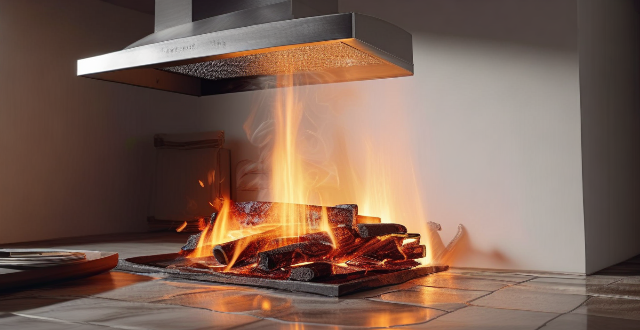
What safety precautions should be followed in kitchens to avoid fires ?
To prevent kitchen fires, essential safety measures include keeping flammable materials away from heat sources, cleaning up spills immediately, not leaving cooking unattended, installing working smoke alarms, and having a fire extinguisher accessible. Cooking safety tips involve using appropriate cookware, watching pot lids, avoiding overfilling pots with oil, and setting timers for cooking. Electrical appliance safety requires unplugging unused appliances, inspecting cords regularly, and avoiding damaged plugs or outlets. Gas stove safety includes checking for gas leaks, keeping flammable objects away from burners, and having gas lines professionally inspected annually. Maintenance and cleanliness are also crucial, such as cleaning range hood filters, ovens, and disposing of grease properly.
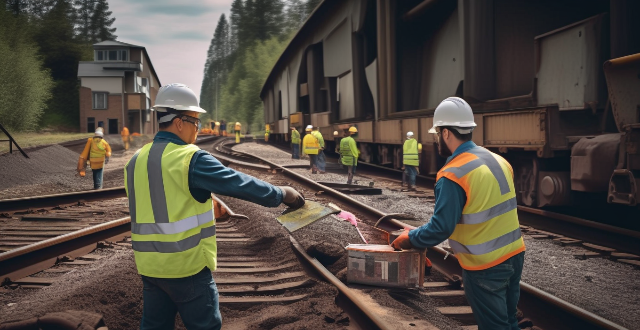
How do safety drills help identify potential hazards in the workplace ?
Safety drills are crucial exercises to simulate and identify potential hazards in the workplace. They help highlight weak links in safety procedures, test equipment and infrastructure, enhance visibility of hazardous areas, train for unexpected circumstances, and promote a culture of safety. By conducting regular drills, organizations can reduce accidents and ensure a safer environment for employees.

How do weather conditions affect building safety during construction ?
The text discusses the impact of various weather conditions on building safety during construction. It highlights the risks associated with extreme heat, cold weather, rain and water, strong winds, snow and ice, and lightning and thunderstorms. The conclusion emphasizes the importance of monitoring weather forecasts and adjusting working procedures to ensure worker safety.

How can businesses ensure fire safety for their employees and customers ?
Ensuring fire safety in businesses is crucial for the well-being of employees and customers, as well as for protecting assets and reputation. This comprehensive guide outlines several key measures, including installing and maintaining fire alarms and smoke detectors, keeping fire extinguishers accessible and up-to-date, developing a fire evacuation plan, training employees on fire safety procedures, controlling sources of ignition, storing flammable materials safely, and partnering with local fire departments. By following these steps, businesses can significantly enhance their fire safety and prevent potential disasters.
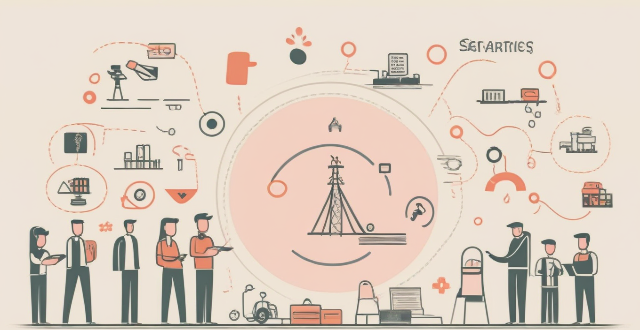
What role do safety regulations play in preventing workplace accidents ?
The role of safety regulations in preventing workplace accidents is crucial. They establish standards, provide training and education, enforce compliance, create a culture of safety, and reduce liability and costs. By adhering to these regulations, employers can protect their workforce and maintain a safe working environment.
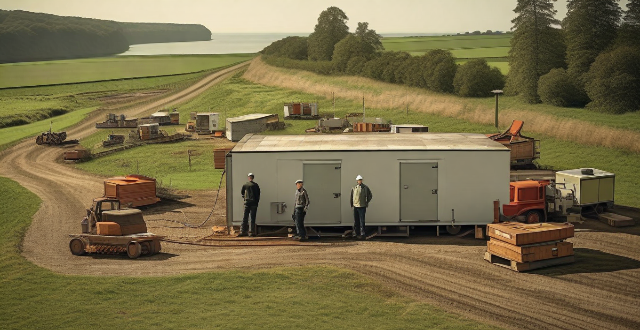
How do I safely dispose of old or damaged electrical devices ?
This comprehensive guide outlines steps for safely disposing of old or damaged electrical devices, including identifying the type of device, checking with the manufacturer, contacting local authorities and recycling centers, donating or selling still-functional devices, properly packaging and transporting devices, considering environmental impacts, and avoiding harmful disposal methods.

How do safety regulations affect the manufacturing industry ?
Safety regulations are critical in manufacturing for worker safety, environmental protection, and product quality assurance but can increase costs and administrative burden while potentially slowing innovation.

What are the warning signs of an overloaded electrical circuit ?
Warning Signs of an Overloaded Electrical Circuit include flickering lights, warm or hot outlets and switches, burning smell, tripped circuit breaker or blown fuse, dimming or fading lights, buzzing sounds, and appliances not working properly. These signs indicate excessive current flow in the circuit, which can lead to damage and potential fire hazards. It is important to consult a licensed electrician for inspection and necessary repairs if you suspect an overloaded circuit.
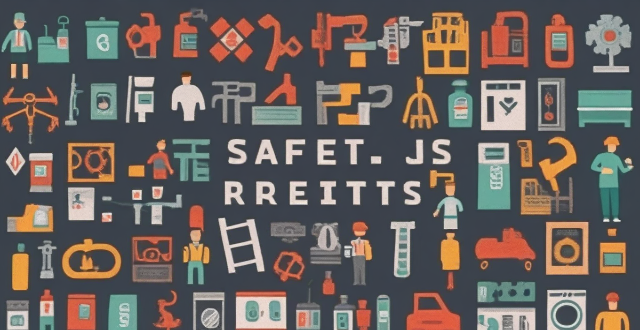
Are there any special safety precautions I should take when working with an internal rotor motor ?
The text discusses safety precautions for working with internal rotor motors. The key points include wearing appropriate personal protective equipment (PPE), disconnecting the power source before starting work, using insulated tools and gloves when working with live electrical components, using proper lifting techniques and equipment when moving heavy motors or components, avoiding contact with moving parts while the motor is running, handling lubricants or coolants carefully to avoid spills or skin contact, storing chemicals in a well-ventilated area away from heat sources and ignition sources, following proper disposal procedures for waste materials generated during maintenance or repair work, working in a well-ventilated area to minimize exposure to fumes or dust, using vacuum cleaners or other collection devices to capture debris and minimize cleanup time, and disposing of hazardous waste materials according to local regulations and guidelines.
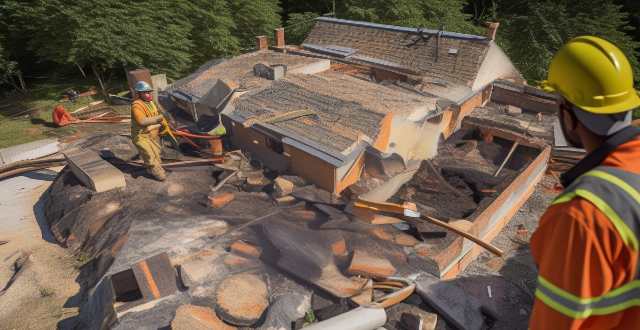
How can I prevent fires from starting in my home or business ?
The article provides comprehensive guidelines on preventing fires in homes and businesses. It suggests installing and maintaining smoke detectors, having a fire extinguisher readily available, practicing electrical safety, being careful with flammable materials, developing a fire escape plan, ensuring cooking and heating safety, and maintaining outdoor fire safety. These measures are crucial for reducing the risk of fires and ensuring the safety of loved ones and assets.
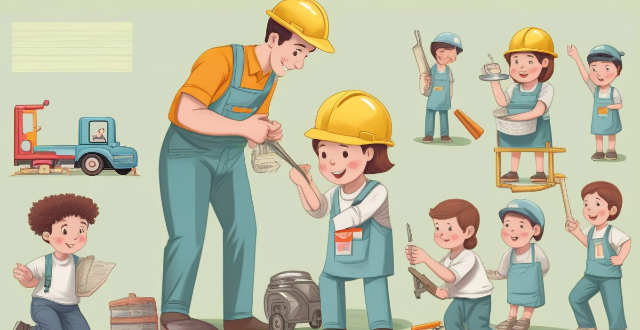
How can parents effectively teach their children about safety ?
Teaching children about safety is crucial for their well-being. Parents can effectively teach their children about safety by establishing clear rules, educating them about potential dangers, practicing safety drills, encouraging open communication, and modeling safe behavior. By doing so, children will develop awareness and the ability to protect themselves from potential dangers.